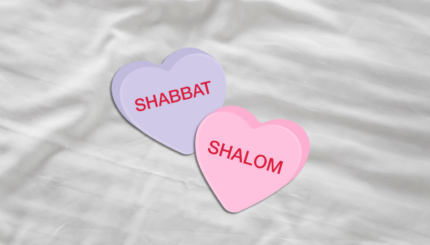Last week, PBS Frontline aired a powerful, thoughtful and educational documentary, Growing up Trans. The families and the children who shared their stories came from all ethnic and religious backgrounds, including Jewish. My own experiences with members of my community lead me to believe that, while significant Jewish resources now exist for individuals who are transgender, too few people know about them and we still have much work to do in this arena.
I know that among my liberal colleagues, some are beginning to seek guidance on how to offer a coming of age ritual for a 13-year-old that is not inherently gendered as either a Bat or a Bar Mitzvah. My own response to this is to present a 13-year-old with a “certificate for reaching the age of mitzvah” and to speak of “reaching the age of mitzvah” throughout a ceremony. For the aliyah to the Torah, a gender-neutral option is to call someone as Ploni mi-beit Ploni v’Ploni (from the house of the named parents, rather than “son of” or “daughter of”).
A number of Jewish summer camps have already responded to the needs of a child who has begun to transition where, having been a camper for several summers presenting as one gender is now returning as the other. We have rabbinic colleagues who are transgender who have provided much educational and ritual material. For example, Rabbis Reuben Zellman and Elliot Kukla have created Transtexts to explore gender and gender identity through the lens of Jewish text study. Torah Queeries offers queer readings of the weekly Torah portion (available online, and now as a book).
There are blessings and rituals for the act of transitioning — find several at Ritualwell.org — some of which are blessings that can be said in a private or a public setting, and some which incorporate the ritual of mikveh — a powerful way to mark the transitioning from one state or identity to another.
I provide these few examples because perhaps you, like others that I have met with whom I have shared these possibilities and resources, will be thinking “I didn’t realize that Judaism could be a part of the journey we are on.” While I am not here to argue with those who struggle with where transgender identities fit within less progressive branches of Judaism, I do believe it is important that, for many Rabbis, we want to offer the blessings and the rituals of Jewish practice and the spiritual support that can come with it for Jews of all ages who are transgender.
Speaking personally, having come out as a lesbian in my late 20s, I have directly experienced the sense of completeness and spiritual wholeness — shalem — that came with fully stepping into my sense of self, no longer trying to hide or push down the piece that was non-conforming with the majority of society. I believe that we help to make our society more shalem when each of us brings our specificity into that society by fully living out our truth, bringing to light the diversity that is inherently part of our world. It is incumbent on society to recognize when, through intentional or unintentional acts, we limit the ability of some to live out that wholeness for reasons that have no inherent benefit. In recognizing them, it is then incumbent upon us to try and fix those things (for example, providing legal protections so that an individual who is transgender cannot be fired from their job because of this facet of their identity).
I believe that it is holy work to peel back the layers that prevent our souls from shining as brightly as they can. In doing this holy work, it is important that we have Jewish blessings and Jewish rituals to raise up the moments in our lives when we take a brave step forward, begin a process of transitioning, honor with love what is left behind and embrace with joy what is now revealed. And it is an honor, as rabbis, for many of us to accompany members of our communities on this journeys.
aliyah
Pronounced: a-LEE-yuh for synagogue use, ah-lee-YAH for immigration to Israel, Origin: Hebrew, literally, "to go up." This can mean the honor of saying a blessing before and after the Torah reading during a worship service, or immigrating to Israel.
Torah
Pronunced: TORE-uh, Origin: Hebrew, the Five Books of Moses.



